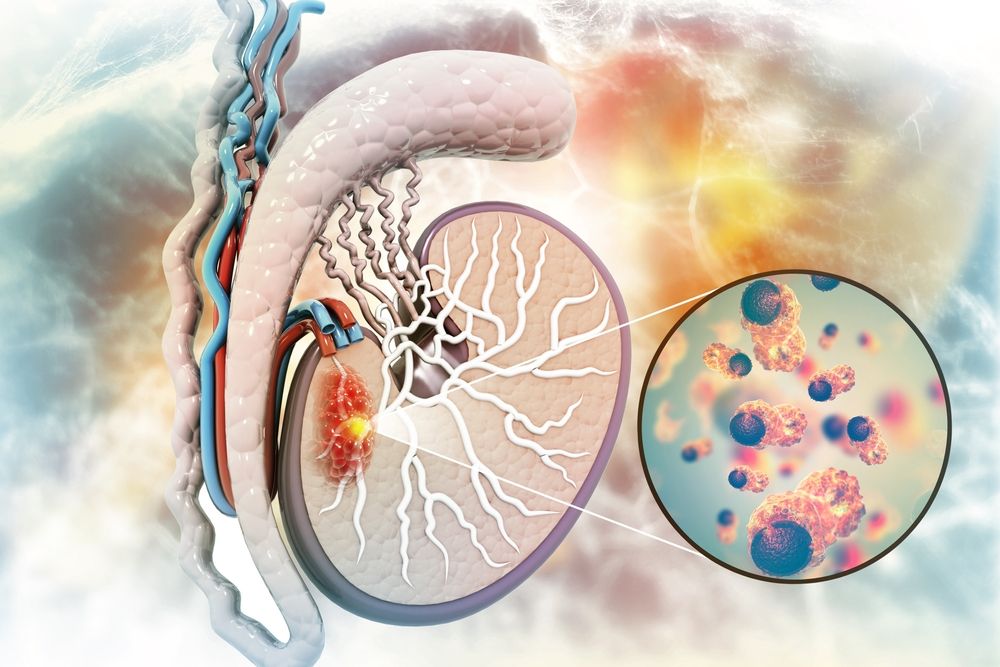
Testicular Cancer: Causes, Symptoms and Treatment
When it comes to health, it's crucial to stay informed and aware of potential risks. Testicular cancer, while not a commonly discussed topic, is a significant concern that affects many men worldwide. In this article, we'll delve into the causes, symptoms, and treatment options for testicular cancer, providing you with valuable insights to protect your health.

1. What is Testicular Cancer?
Testicular cancer is a type of cancer that originates in the testicles, the male reproductive organs responsible for producing sperm and testosterone. Unlike many other forms of cancer, it predominantly affects young men between the ages of 15 and 44. It's important to note that testicular cancer is highly treatable, especially when detected early.
2. Who is at Risk?
While testicular cancer can affect men of any age, certain factors may increase the risk, including a family history of the disease, an undescended testicle at birth, and a personal history of testicular cancer. However, most cases occur in men with no known risk factors, underlining the importance of regular self-exams and awareness.
3. Understanding the Causes
The exact causes of testicular cancer remain unclear. However, researchers have identified some potential risk factors. These include genetic factors, such as a family history of the disease, as well as environmental factors, like exposure to certain chemicals. More research is needed to fully understand the origins of testicular cancer.
4. Recognizing the Symptoms
One of the key aspects of managing testicular cancer is recognizing the symptoms early. Common symptoms include:
A painless lump or swelling in the testicle: This is often the first sign of testicular cancer.
A feeling of heaviness in the scrotum: This can indicate an enlarged testicle.
Pain or discomfort in the testicle or scrotum: While not always present, any persistent pain should be evaluated by a healthcare professional.
5. The Importance of Early Detection
Early detection of testicular cancer significantly improves the chances of successful treatment. Regular self-exams and awareness of changes in your testicles are essential. If you notice any unusual signs or symptoms, don't hesitate to consult a healthcare provider.
6. Diagnosis: How It's Done
When you visit a healthcare professional with concerns about testicular cancer, they will perform a series of tests. These may include a physical examination, blood tests, and ultrasound imaging. In some cases, a biopsy may be necessary to confirm the diagnosis.
7. Types of Testicular Cancer
There are two main types of testicular cancer:
Seminoma: This type is more common and tends to grow slowly. It is highly sensitive to radiation therapy.
Non-seminoma: This is a group of cancers that grow and spread more quickly. Treatment often involves a combination of surgery and chemotherapy.
8. Treatment Options
The treatment for testicular cancer depends on various factors, including the type and stage of the cancer. Common treatment options include:
Surgery: The removal of the affected testicle, known as a radical inguinal orchiectomy, is often the first step.
Radiation therapy: This is used for seminomas to kill remaining cancer cells.
Chemotherapy: Non-seminomas typically require chemotherapy to eliminate cancer cells.
Surveillance: In some cases, a "watch and wait" approach is taken, where the patient is closely monitored without immediate treatment.
9. Life After Treatment
After successfully overcoming testicular cancer, it's normal to have concerns about life post-treatment. Most men can lead healthy, fulfilling lives after treatment. However, regular follow-up visits are essential to monitor for any recurrence or side effects.
10. Prevention and Self-Care
While there's no surefire way to prevent testicular cancer, self-care and awareness are crucial. Here are some steps you can take:
Perform regular self-exams.
Be mindful of any changes in your testicles.
Maintain a healthy lifestyle with a balanced diet and regular exercise.
Avoid exposure to known environmental risk factors.
11. PARAS - Best Hospital in Panchkula: Your Trusted Partner
If you or someone you know is facing testicular cancer, it's essential to seek care from a reputable medical institution. PARAS, the best hospital in Panchkula, is your trusted partner in this journey. Our experienced medical professionals and state-of-the-art facilities ensure you receive the highest quality care and support throughout your treatment.
12. Conclusion
In conclusion, testicular cancer is a condition that can affect any man, but early detection and prompt treatment can lead to favorable outcomes. By staying informed, conducting regular self-exams, and seeking care from top-tier institutions like PARAS - Best Hospital in Panchkula, you can protect your health and well-being.
FAQs About Testicular Cancer
Q1: What are the risk factors for testicular cancer?
Risk factors include a family history of the disease, an undescended testicle at birth, and a personal history of testicular cancer.
Q2: Is testicular cancer curable?
Yes, testicular cancer is highly curable, especially when detected early.
Q3: Can I lead a normal life after treatment?
Yes, most men can lead normal, healthy lives after successful treatment.
Q4: How can I perform a self-exam for testicular cancer?
You can perform a self-exam by gently rolling each testicle between your thumb and fingers, feeling for any unusual lumps or changes.
Q5: Why choose PARAS - Best Hospital in Panchkula for testicular cancer treatment?
PARAS is renowned for its excellence in medical care, ensuring you receive the best possible treatment and support during your journey to recovery.
In conclusion, staying informed about testicular cancer is essential for every man's health. By understanding the causes, recognizing the symptoms, and being proactive in seeking medical care, you can increase your chances of early detection and successful treatment. Remember, your health is a priority, and institutions like PARAS - Best Hospital in Panchkula are here to support you on your path to recovery.
Appreciate the creator